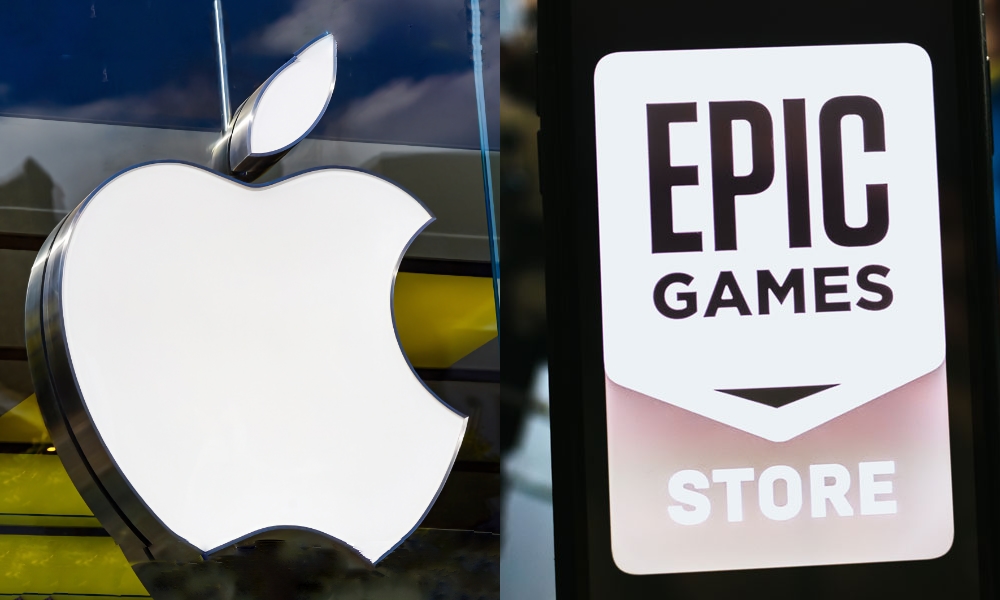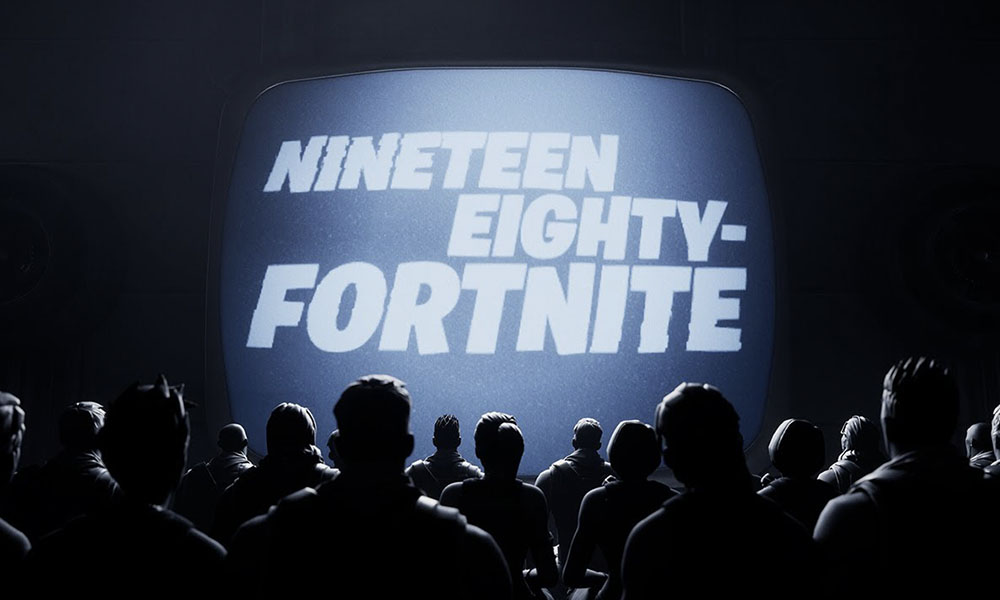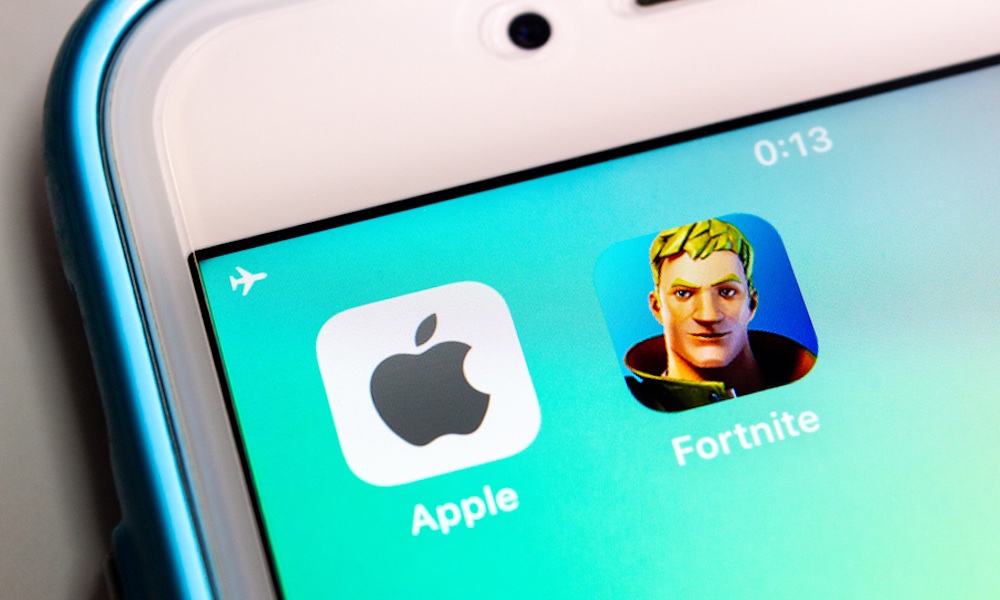Epic Games Extends an Olive Branch to Apple
 Vytautas Kielaitis / nikkimeel / Shutterstock
Vytautas Kielaitis / nikkimeel / Shutterstock
Toggle Dark Mode
Not long after Apple was smacked hard by a US court yesterday, Epic Games’ CEO Tim Sweeney announced that Fortnite would return to the US iOS App Store “next week,” offering Apple a “peace proposal” in the process.
In a post on X, Sweeney promised to drop all litigation against Apple in this specific area if the company complies with the court’s order worldwide rather than just in the US as it’s legally required to do. Still, it remains an open question whether Fortnite will actually be welcome on the App Store anywhere in the world.
In an 80-page ruling, Judge Yvonne-Gonzalez Rogers excoriated Apple for doing everything it could to defy her 2021 injunction by creating new barriers to competition — and then lying about it to cover up its anti-competitive motivations. It’s some of the strongest language you’ll ever see in an official court ruling, and it’s fair to say that Judge Rogers was not amused by Apple’s games.
However, there’s no indication that Judge Rogers’ ruling explicitly paves the way for Fortnite to return. The original 2021 injunction and yesterday’s beefed-up version force Apple to allow developers to use alternative payment methods outside the App Store and prohibit the company from making the process difficult or collecting commissions.
Epic Games kicked off this whole kerfuffle five years ago when it snuck its own in-app purchasing system into Fortnite, in a flagrant violation of Apple’s rules. Judge Rogers’ ruling now permits Epic to do that without Apple’s interference. However, there’s one problem: the order isn’t retroactive. It merely upholds the original injunction, which came into effect on December 9, 2021, 90 days after Judge Rogers’ final ruling in the initial Epic vs. Apple case.
Apple convinced an appellate court to stay the injunction until its appeal of the original case played out. However, it came back into force on January 16, 2024 — the day the Supreme Court declined to hear Apple’s final appeal.
After that, Apple began looking for every way it could to comply with the most technical terms of the injunction while disregarding the intent of it entirely — it “thwarted the Injunction’s goals,” as Rogers said in her ruling. Epic sued Apple for what Tim Sweeney called “malicious compliance,” and after Judge Rogers held a first set of hearings in 2024, she saw through what she called “its obvious cover-up” in which Apple shared a “decision-making process” that was “tailor-made for litigation.” The judge ordered a second set of hearings in early 2025, resulting in the final ruling that made it clear she had run entirely out of patience with Apple’s shenanigans — to the point of referring the company and one of its executives to be investigated for possible criminal contempt and charges.
In the midst of all this, Tim Sweeney’s optimism about Fortnite returning to the App Store seems to be deliberately missing one crucial point: Epic Games was kicked off the App Store initially for breach of contract. Apple didn’t just remove Fortnite; it terminated Epic Games’ developer agreement entirely, declaring it persona non grata.
Apple’s decision at the time wasn’t about the validity of its App Store policies. Epic launched a lawsuit to ask the courts to determine if those policies were fair and equitable, but the termination of Epic’s relationship with Apple was a simple contractual matter. Epic Games agreed to follow Apple’s rules, then Epic broke Apple’s rules, and Apple responded.
Judge Rogers even sided with Apple on this one in 2020 after Epic Games tried to convince her to issue an injunction ordering Apple to restore its developer account and allow Fortnite back into the App Store. The only ground Epic won in that hearing was the restoration of the developer account it used to develop the Unreal Engine. Apple had terminated all of Epic Games’ developer accounts, not just the one it used to publish apps like Fortnite, and Judge Rogers ruled that cancelling the Unreal Engine one would create collateral damage. “Epic Games and Apple are at liberty to litigate against each other, but their dispute should not create havoc to bystanders,” Rogers ruled.
However, Rogers also called Epic’s behavior a “calculated move to breach” its contract with Apple and said it couldn’t claim “irreparable harm when you create a harm yourself.”
In the final 2021 ruling, Epic lost on 9 of the 10 claims it had made against Apple. Judge Rogers even ordered Epic to pay Apple the commissions it should have earned from in-app payments made by Fortnite players that bypassed Apple’s in-app purchasing system during the time between Epic turning the new feature on and Apple removing the app.
In fact, Judge Rogers’ latest ruling mentions Epic Games once, only to provide background for the case. Fortnite isn’t mentioned at all. This latest ruling is 100% about Apple and its defiance of the court. Epic arguably gets credit for bringing the matter to the Court’s attention, but it doesn’t really win anything here, at least not directly.
At no point in either of Judge Rogers’ rulings on this case did she state that Apple had to welcome Epic Games back into the App Store with open arms. Epic still breached its contract, and nothing in the judgment invalidates that prior contract. Apple can’t create new restrictions, but the ones it had before remain entirely enforceable.
If Apple lets Fortnite back into the App Store — and that’s a big “if” — Epic Games will be allowed to roll its own purchasing system and avoid giving Apple even a nickel of its take from that or any of its other games. However, there’s no indication that Apple is under any obligation to play nice with Epic Games.
That’s likely why Tim Sweeney is offering an olive branch. He’s not a stupid man; he has to know that Apple isn’t being forced to take him back. He’s likely hoping his promise to lay down arms will encourage Apple to do the same, allowing Fortnite to return on Sweeney’s terms.
It’s also a calculated PR move. Sweeney comes across as the reasonable voice here and acts like he’s in control. If Fortnite doesn’t return to the App Store, he can claim it’s because Apple wasn’t willing to play ball.
Unfortunately for Sweeney (and Fortnite fans), it doesn’t look like Apple is willing to throw in the towel anytime soon. It issued a simple statement to the media today, with a spokesperson stating, “We strongly disagree with the decision. We will comply with the court’s order and we will appeal.”
It looks like this war won’t be ending anytime soon, but Judge Rogers’ order should at least keep it in the courtrooms where it belongs and prevent Apple from coming up with any other seemingly clever ways to get around the injunction.










